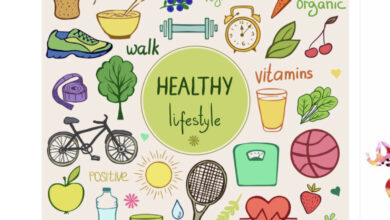CONTACT TRACING FOR COVID-19 NEEDS A BOOST

Contact Tracing is an age-old method of slowing the spread of communicable diseases. When a person is diagnosed with an infectious disease, he or she is asked to name every individual with whom they’ve been in contact over a defined period of time. “Contact tracing” is a term heard frequently in this day of SARS-CoV-2 viral infection (ie. COVID-19).
My first exposure to contact tracing was in the gynecology clinic in Marion County General Hospital in Indianapolis, Indiana, during medical school. Employees of the Marion County Public Health Department were always present in the clinic to question women diagnosed with sexually transmitted diseases about the individuals with whom they had “contact” before and after they were diagnosed. These encounters were often contentious, and only mildly successful.
This era of contact tracing is different, however. Public health departments are better staffed, and the disease being traced doesn’t have the social stigma of syphilis or gonorrhea. Success rates aren’t what you might expect, though. I would think that after testing positive for COVID-19, Mr. Smith would be more than happy, in fact, eager, to share the identities of all his recent contacts to warn them of what might be coming. But unfortunately, that’s not the case.
A “lack of community cooperation has stymied US efforts to slow the spread of SARS-CoV-2, according to CDC analysis.” “Patient’s reticence to share the names of contacts beyond their own household may have hampered contact tracing efforts…” and “contact tracers’ fatigue or inexperience may also have played a role…” in poor results.
A CDC funded analysis of 56 health departments showed contact tracers had an average of 31 cases each (range 1 to 196)—31 people diagnosed with COVID-19. Each case, of course, had multiple contacts to investigate. On average, US contact tracers had interviewed about half of their patients within 24 hours of their case being reported. The more cases the tracer had, the less efficient the tracer was at interviewing contacts. Delays were also plagued by reluctant patients and inadequate numbers of tracers. State and local health departments need to strengthen “awareness” to “improve community perception or willingness to provide more complete lists of contacts.”
Dr. G’s Opinion: This surprises me. Are people frightened of “Big Brother?” Do they fear government intrusion or surveillance? Do they fear being punished in some manner? Or do they just not want to “rat on their friends” for fear of harm to them? I guess I can understand that attitude. People are reluctant to get others involved for fear of over-reaction on the part of health officials. No one wants a big red “QUARANTINE” sign on their front door. People don’t react well to that. Why not just tell individual contacts privately? Be responsible and concerned enough to notify all those you were with so they can self-quarantine and avoid outside intimidation. I’m not paranoid enough to think the whole thing is a conspiracy; at least, I certainly hope not. County and state health departments are agencies that still have the public’s best interest as their basis for policy. If they don’t, God help us.
Reference: News from the CDC. “More Resources, Community Outreach Needed to Boost Contact Tracing” JAMA 2021 Mar 9;325(10):925.

